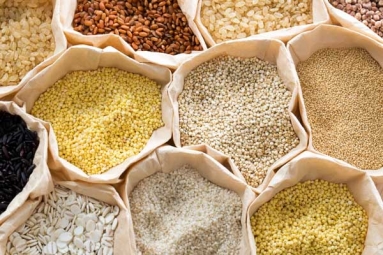
(Image source from: Canva.com)
Vegetarian and vegan diets are becoming more popular as an increasing number of health-minded people are opting for plant-based choices to improve their health. Well-known figures like Virat Kohli, Amitabh Bachchan, and Genelia D'Souza have embraced this way of living. Innovative cooking ideas have emerged, and eateries are broadening their menus to include a wide range of vegetarian and vegan selections. However, a lingering question is whether plant-based diets can provide necessary nutrients. To address this, specialists from France’s Agency for Food, Environmental and Occupational Health & Safety (ANSES) have released thorough findings, examining the health advantages, possible hazards, and nutritional aspects of these dietary practices. The term vegetarian describes diets that exclude all forms of animal meat, including meat from land animals, fish, or seafood.
Within this group, various types exist, such as lacto-ovo vegetarians and vegans. Lacto-ovo vegetarians consume eggs and dairy products, while vegans go further by avoiding all forms of animal-derived foods. The research indicated that individuals on a vegetarian diet are less likely to develop Type 2 diabetes compared to those who eat meat. Furthermore, the findings suggested that vegetarians face a lower risk than non-vegetarians for specific illnesses like ischaemic heart disease, ovulation issues, some cancers (including prostate, stomach, and blood cancers), along with various eye and digestive problems. Nonetheless, the study also identified some possible dangers. Individuals strictly following vegetarian or vegan diets may have a higher chance of experiencing bone fractures and hypospadias, which is a birth defect affecting the urethra.
Regarding nutritional content, vegetarians can miss out on vital nutrients such as iron, iodine, and vitamins B12, D, and omega-3 fatty acids (EPA and DHA). They may also have an unbalanced intake of calcium and phosphorus compared to non-vegetarians. ANSES has provided dietary recommendations for adult vegetarians that suggest including fruits, vegetables, legumes, grains, seeds, fiber, milk, cheese, and brewer's yeast among their foods. The research also highlights the importance of taking supplements when necessary to ensure all nutritional needs are met.







